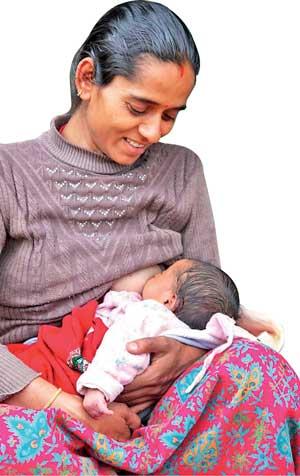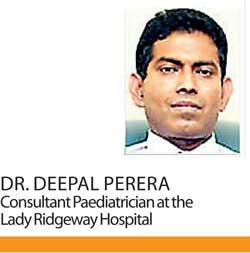14 Aug 2020 - {{hitsCtrl.values.hits}}
 Breastfeeding is a recognised, time-tested and evidence-based intervention to reduce child morbidity and mortality. It significantly improves nutritional status, health and cognitive developments of infants and young children while protecting children and mothers from non-communicable diseases. This year’s World Breastfeeding Week highlighted on the link between breastfeeding and planetary health. When considering the ecological footprint of
Breastfeeding is a recognised, time-tested and evidence-based intervention to reduce child morbidity and mortality. It significantly improves nutritional status, health and cognitive developments of infants and young children while protecting children and mothers from non-communicable diseases. This year’s World Breastfeeding Week highlighted on the link between breastfeeding and planetary health. When considering the ecological footprint of  breastfeeding it is said that exclusive breastfeeding for six months after birth requires, on average, an additional 500 kcal of energy per mother per day. Breastfeeding is said to be a sustainable and ecological solution that contributes positively to planetary health as well as human health.
breastfeeding it is said that exclusive breastfeeding for six months after birth requires, on average, an additional 500 kcal of energy per mother per day. Breastfeeding is said to be a sustainable and ecological solution that contributes positively to planetary health as well as human health.
Due to the COVID-19 pandemic there’s an ongoing need to advocate breastfeeding as a public health intervention that saves lives and prevents infections and illnesses in the population at large. But medics believe that even if you’re a COVID positive mother you should continue breastfeeding. “There may be a risk to the child, but if they are not breastfed, children are at risk of contracting other infections and diseases,” explained Dr. Deepal Perera, Consultant Paediatrician at the Lady Ridgeway Hospital. “This is the same advice we give HIV positive mothers as well,” Dr. Perera added.

Another recommendation for breastfeeding during a COVID-19 situation is that the mother and infant should be enabled to remain together while rooming-in throughout day and night and to practice skin-to-skin contact, especially immediately after birth and during establishment of breastfeeding. This is irrespective of whether the mother or infant has been suspected or confirmed to have COVID-19 or not.
21 Dec 2024 5 hours ago
21 Dec 2024 7 hours ago
21 Dec 2024 21 Dec 2024
21 Dec 2024 21 Dec 2024
21 Dec 2024 21 Dec 2024